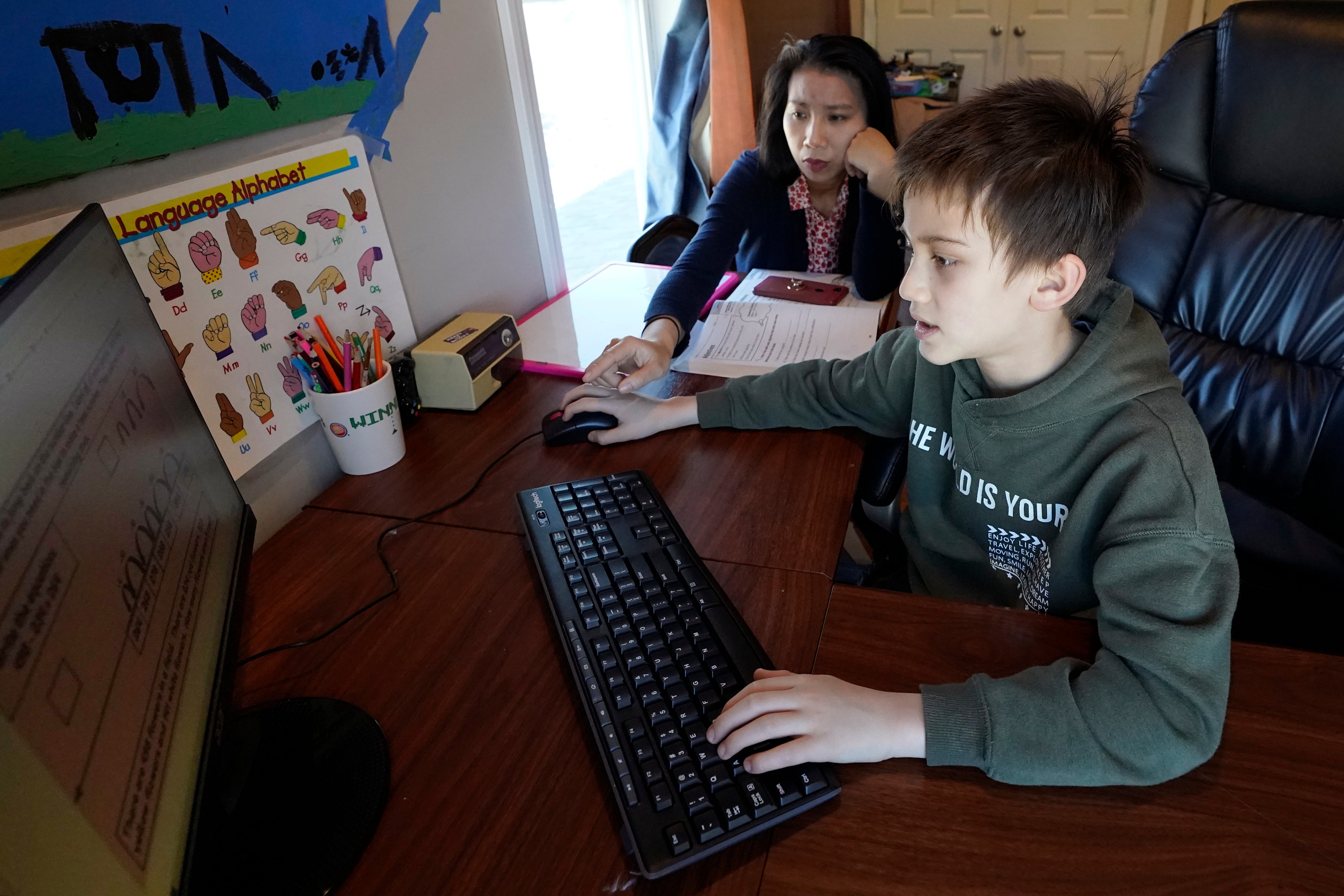Fuel crisis could force schools to return to remote learning
Fuel shortages have caused deadlock traffic across the country and left many without access to fuel

Schools could be forced to close and move lessons online as petrol crisis disruption deepens, headteachers fear.
Headteachers see the option as a “last resort” if fuel supply problems prevent teachers from getting to work.
Some schools have warned parents there could be a return to remote learning if staff are unable to come into school due to fuel shortages.
Geoff Barton, General Secretary of the Association of School and College Leaders said there is an “option for remote education” if the petrol crisis causes further disruption.
“Schools and colleges are operating under a great deal of pressure at the moment because of the situation with Covid infections. The last thing they need is the added pressure of fuel shortages with the potential for this to mean that staff, pupils and suppliers are unable to get to school,” Mr Barton said.
Mr Barton added that a return to online learning is a “last resort” that schools and colleges will hope not to make use of, but insisted that schools are adept at providing remote education - as shown during lockdown - if disruptions do result in that.
A school in Surrey wrote to parents warning that the petrol crisis could disrupt school this week, The Times reported.
The letter stated: “The current petrol crisis could potentially disrupt school next week. The ability of staff and pupils to get to school may be compromised and there may also be issues with our food deliveries.
“We sincerely hope that it won’t be the case, but if it becomes necessary to temporarily move to online learning, we will consider this as an option.
“Clearly, we have no desire to go back online so soon after the challenges of the last couple of years but we cannot exclude the possibility that it may be Stranded teachers may return to online classroom necessary. We will, of course, closely monitor the situation and will keep you fully informed.”
Paul Whiteman, general secretary of school leaders’ union National Association of Headteachers (NAHT) told The Independent schools were ready to do “everything in their power” to minimise possible disruptions of the ongoing petrol crisis.
He said the NAHT has not yet come across major disruptions due to the shortages, schools were still grappling with the impacts of coronavirus and hope further disruption from the petrol crisis would be avoided.
One Derby headteacher said had been offered to pay for taxis to ensure staff could get into work
“Forget Covid, petrol shortages are now having an impact on schools being able to deliver,” tweeted Gemma Penny.
Petrol stations have been limiting purchases to £30 as drivers panic buy fuel, while BP and Esso forced to close stations as pumps have gone dry.
The Department for Education has been approached for comment.
Join our commenting forum
Join thought-provoking conversations, follow other Independent readers and see their replies
Comments
Bookmark popover
Removed from bookmarks